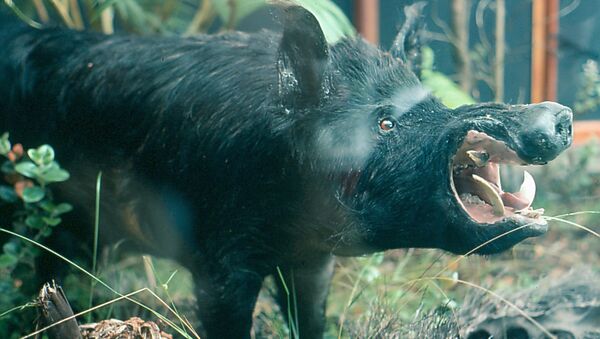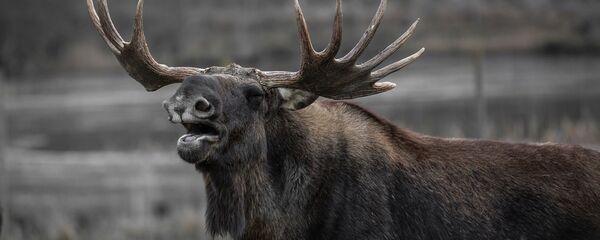A boar shot in Swedish forests in August measured a radiation level of 13,000 Becquerel per kilogram (Bq/kg), while another one's radiation level measured at 16,000 Bg/kg, whereas the limit set by Sweden's Food Agency for safe consumption is 1,500 Bq/kg.
The latter animal, which was shot a while ago, but was kept in frozen storage, was killed in Tärnsjö, located between Uppsala and Gävle in central Sweden.
"This is the highest level we've measured," a troubled Ulf Frykman, environmental consultant who tests radiation levels in game meat, told Swedish national broadcaster SVT about the trophy exceeding the safe limit by over ten times.
In recent years, levels of radiation in animals such as elk and reindeer have been known to be continually receding, whereas the boar population seems be moving in the opposite direction.
The animals themselves rarely suffer any negative health effects from the radiation due to their short life spans, but people who consume meat with high radiation levels may be facing increased health risks.
"You can eat meat that exceeds the limit once a year, but meat containing more than 10,000 Becquerel per kilo is best to be avoided," Pål Andersson, investigator at the environmental monitoring unit at the Radiation Safety Authority," told Swedish Radio. "But it's still not that you immediately receive radiation doses that are harmful," he added.
Although radiation is known to increase the risk of cancer, Pål Andersson dismissed the risks as "rather small."
Frykman argued that radiation may potentially scare off hunters from chasing wild board, whereas Andersson suggested that the spread of radioactive boars may affect local farmers.
The increase in radioactivity in wild boars has been linked to the boar population moving to areas of Sweden previously affected by the nuclear fallout from Chernobyl.
Thirty years after the disaster, waning traces of increased radiation are still occasionally found in Sweden's wild moose and reindeer, which are herded by members of the indigenous Sami community. In the past few years, only two of around 50,000 reindeer tested were classed as unfit for consumption due to high radiation levels.
The risk for consumers of being exposed to harmful levels of radiation from eating moose meat, picking mushrooms or berries in the Swedish forests, is low, as Swedish toxicologists have reassured time and again. According to the Swedish news outlet The Local, only one percent of radioactive substances most Swedes end up being exposed to can be traced back to Chernobyl.




